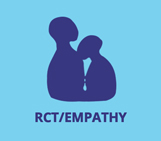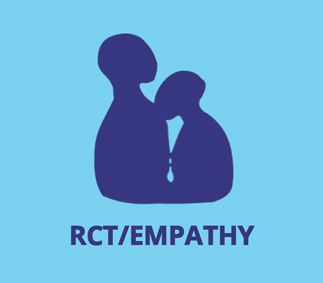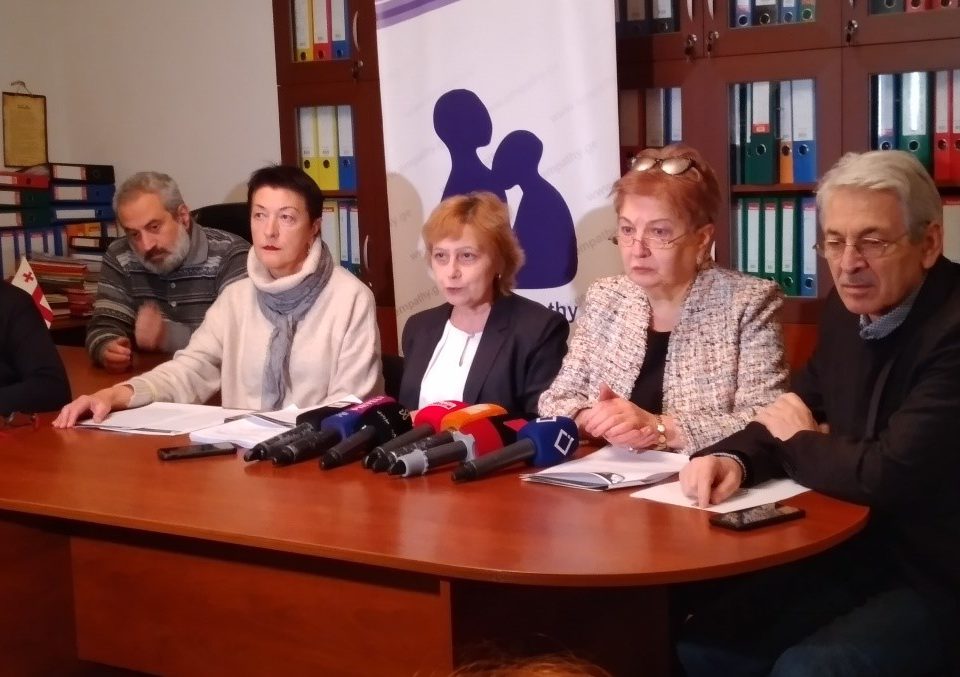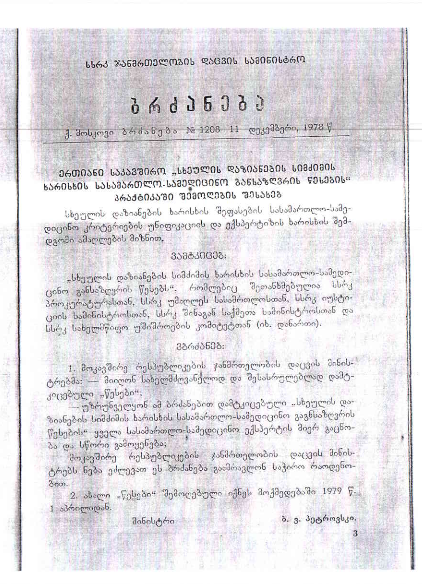- Hot Line
- + 995 599 88 54 68
- + 995 599 88 54 28

ცენტრი “ემპათია” -ს ექსპერტთა დასკვნა მიხეილ სააკაშვილის ამჟამინდელი მკურნალობა – რეაბილიტაციის შესახებ
December 18, 2021
Non-Governmental Organization RCT ‘’EMPATHY” Special Statement
February 24, 2022The Summarized Findings and Recommendations on Current Health Condition of imprisoned third President of Georgia Mr. Mikheil Saakashvili
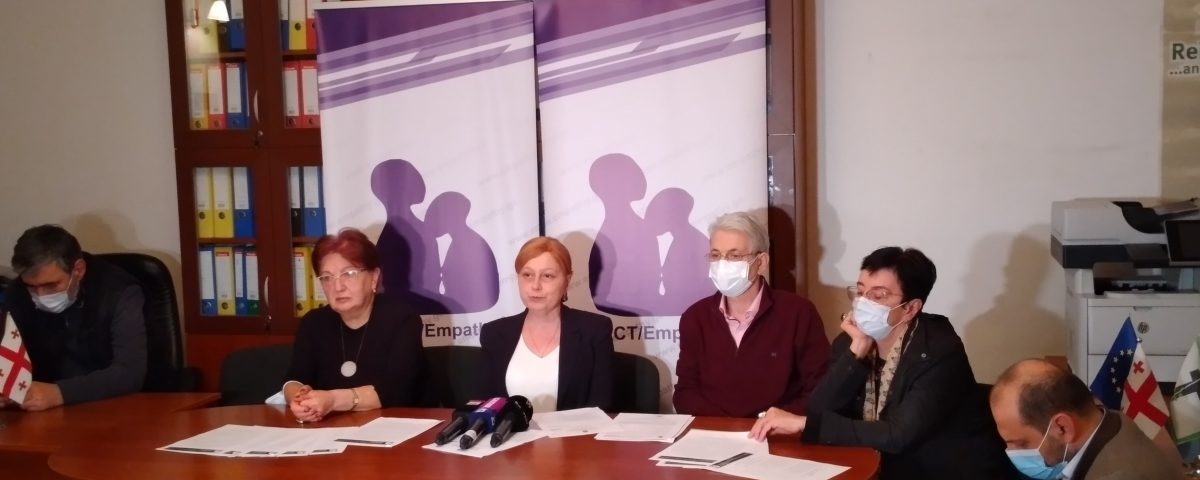
VI. Summarized Findings and Recommendations on Current Health Condition of third President of Georgia Mr. Mikheil Saakashvili
The patient – Mikheil Saakashvili, the third President of Georgia, being currently in custody and subjected to torture and improper treatment from penitentiary personnel as well as provided with inadequate medical care after the prolonged process of hunger strike – developed the following diseases (according to the International Classification of Diseases – ICD 10):
- Victims of torture and ill-treatment – Z 65.4 (Victim of torture); ICD (Neuroleptic syndrome), chapter Y 40-59: medicines, medications and biological substances, which can lead to adverse effects while their therapeutic use: Y 49.5. Other antipsychotics and neuroleptics.
- Effects of hunger: T73.0. (Result/Effect of hunger strike)
Within acute period:
- Wernicke Encephalopathy – E 51.2.;
- Convulsion followed by 20-minute loss of consciousness episode; other and unspecified convulsions – R 56.8.;
- Delirium, developed without dementia background (acute organic psycho-syndrome) – F 05.0;
- Syndrome of Hypovolemia (dehydration – depletion of plasma volume or extracellular fluid) – E 86;
- Fluid, electrolyte and acid-base disbalance – E. 87.8.
Currently, the patient experiences the following disorders:
- Wernicke Encephalopathy – E 51.2.;
- Unspecified protein-energy malnutrition – E 46; Polyneuropathy in nutritional deficiency (E40-E64+) – G 63.4.
- Post-traumatic stress disorder – F 43.1;
- Organic and emotionally labile (asthenia) disorder, caused by brain damage and dysfunction – F 06.6. (A disorder characterized by emotional incontinence or lability, fatigability, and a variety of unpleasant physical sensations (e.g. dizziness) and pains, but arising as a consequence of an organic disorder).
Treatment- Rehabilitation:
Due to long-term hunger strike, the patient developed Wernicke encephalopathy caused by the deficit of thiamine. The disease was diagnosed with a delay and no diagnosis of its preconditions was made as well as no prevention measures were taken to stop hunger strike and provide timely medical treatment. Further, treatment of Wernicke encephalopathy did not proceed with required dozes of thiamine and from 30/11/2021 onwards thiamine intake in tablet form stopped as well. Consequently, psychic problems – caused by cerebral-organic dysfunction – developed secondarily. The patient’s condition was worsened and chain mechanism of interaction emerged after the patient was subjected to torture and inhuman treatment, resulting in the development of post-traumatic stress disorder. Hence, we consider it necessary to return to thiamine treatment process with the prescribed thiamine doze outlined in the conclusion herein (500 mg – daily); according to psychiatrist’ and psychologists’ consultations, it is necessary to determine an individual treatment-rehabilitation course tailored to the patient. However, the situation in Gori Military Hospital makes it impossible to do psychotherapeutic interventions due to 24/7 camera surveillance and the high probability of eavesdropping.
According to hematologist consultation, it is necessary to integrate folic acid (15 mg.) in the process of treatment. Endocrinologist and hematologist consultations stress the importance of conducting additional hormonal and other laboratory and instrumental tests. The necessity of conducting additional medical investigations is highlighted in neurologists’ and psychiatrists’ conclusion: MRI of brain, extra- and trans-cranial doppler ultrasound examination of blood vessels, electroencephalography examination in dynamic and electroneurographic as well as neuro-psychological examination.
At present, the patient’s condition requires neurologist and neuro-rehabilitation therapist surveillance; for the effectiveness of treatment-rehabilitation, involvement of multi-discipline group consisting of psychiatrist, psychologist, psychotherapist, endocrinologist, hematologist, gastroenterologist and other specialists is necessary.
Therefore, the patient’s condition reveals the necessity of conducting additional instrumental and laboratory examinations and determining an individual, patient-oriented rehabilitation course; the treatment-rehabilitation course has to be conducted at the hospital dealing with neuro-psychological disorders. For now, the treatment-rehabilitation process going on in Gori Military Hospital cannot be considered as an effective measure. The patient should be given the right of effective medical treatment provided by an alternative treatment-rehabilitation institution, chosen on the basis of careful consideration. Otherwise, ineffective measures of treatment will worsen patient’s conditions dramatically; namely, there is a high risk of developing Korsakoff syndrome which will lead to patent invalidation.
18/12/2021
RCT “Empathy” Expert Group:
